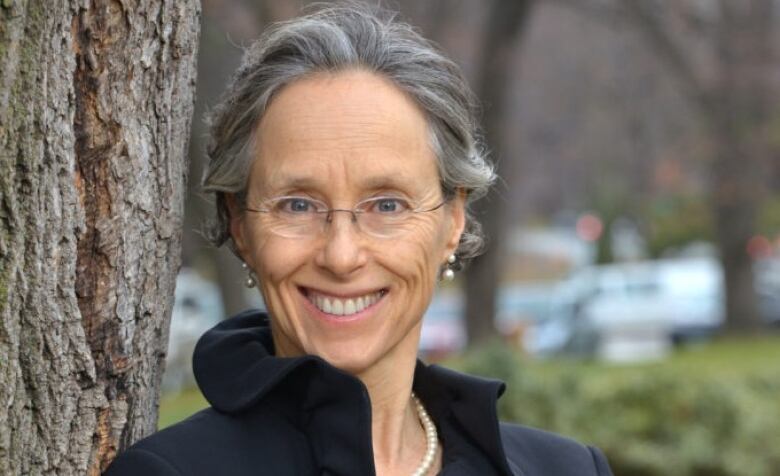Green Party MP at COP26 sees climate change 'commitments' being made but not backed by science
'Good reason for some folks to be concerned' about outcomes, Mike Morrice tells CBC from Glasgow

Our planet is changing. So is our journalism. This story is part of a CBC News initiative entitled Our Changing Planet to show and explain the effects of climate change and what is being done about it.
Green Party MP Mike Morrice says despite the chaos he's witnessed while at the UN climate change summit in Glasgow, he hopes to see countries make tangible and ambitious commitments to address global environmental concerns.
Morrice, a rookie member of Parliament from the Ontario riding of Kitchener Centre, is among Canadians attending the United Nations Framework Convention on Climate Change (UNFCCC).
In an interview with CBC Kitchener-Waterloo's The Morning Edition on Wednesday, he said the event that began Sunday so far is "just chaos."
- Have questions about COP26 or climate science, policy or politics? Email us: ask@cbc.ca. Your input helps inform our coverage.
"You have thousands and thousands of people. The last two days have been a summit of world leaders and so, at one point Prince Charles is walking by on one side, and I saw Greta a half-hour later," he said, referring to Swedish youth activist Greta Thunberg.
"But amidst all of that chaos is also negotiating teams who are here to work on the tech on moving forward on the last agreement from Paris five years ago, to update that to move toward implementation to actually figure out the details."
Morrice said he's heard concerns the summit will end without any real progress.
Thunberg herself said COP26 is like previous conferences and "they have led us nowhere." She argued the politicians were just "pretending" to take concerns about the climate seriously.
Morrice believes "there's good reason for some folks to be concerned."
"There's a real mix of commitments being made and nothing that gets close to hitting the science yet," Morrice said.
Although representatives from almost 200 countries are at COP26, Russia and China, two of the world's biggest polluters, opted out of attending.
But, he added, it's encouraging to take note of the thousands of climate activists, young people and Indigenous leaders in Scotland who are "putting a spotlight" on issues important to them.
They "are saying we expect more from you, that this needs to be government policy that needs to change," he said.
"Ultimately, we need to see both our Canadian federal government and others around the world, and not everyone's even here ... push and advocate to do more," Morrice said.
"Those leaders have been here and their negotiating teams are here, and so this is also a moment to advocate to them and the thousands of people here that are pushing for exactly that. That's pretty encouraging for me to see."
'No magic answer'
The two-week conference will see presentations from experts around the world, including Dianne Saxe, the Green Party of Ontario's deputy leader and the province's former environmental commissioner.
Saxe, who is also an environmental lawyer, will be presenting the Ontario party's $65-billion climate and environmental plan at COP26.
"It's like a crash course master class in anything you want to know — the best people in the world are giving away information," she said of the conference. "It is an astonishing opportunity to be included."
Saxe will make her presentation remotely from Boston to the Green Hub, which is a physical meeting space at the conference.
Saxe attended COP21 in 2015 as well as COP23 in 2017. She said this conference being held during the COVID-19 pandemic is an opportunity to show the world that resources can be targeted in multiple spaces at the same time.

"I recognize that it's really challenging to deal with today's emergency and the long-term emergency at the same time. But we really have no choice. If we don't get serious about climate [change], science tells us we will have more and more climate chaos, we will have more and more short-term emergencies [and] we will have much more suffering, and much less ability to deal with it."
Saxe emphasized conferences such as COP26 are one of the best chances humanity has in working together to stop climate change.
"Gaining consensus among the governments of nearly a billion people is incredibly hard. But if we're not talking to each other about it, it won't happen at all," said Saxe.
"I wish it were faster. I wish it were easier … but since none of those things are true, there's no magic answer. This is the best we've got."

Next steps
On Tuesday, Prime Minister Justin Trudeau called for a global carbon tax, telling those at the summit that it will dramatically curb the use of fossil fuels and level the playing field for countries like Canada that already impose a levy on emissions.
However, the call comes after a report has shown that Canadian governments have allocated billions of taxpayer dollars to building and expanding new pipelines in the past year alone.
"We need to follow the science on the climate crisis and we're not going to do that by turning out lights off at Earth Hour. We're only going to get close to science on climate if the kind of world leaders that are at this event hear our voices," Morrice said, noting he spoke to Environment Minister Steven Guilbeault and Trudeau while at the conference on the issue of furthering environmental policy.
"I'm continuing to advocate ... in any conversation I'm getting a chance to have, to talk [about] ending the subsidies to fossil fuels, to use that money to invest in a just transition and getting close to following the science on climate. And I'll spend my next two weeks here doing exactly that."